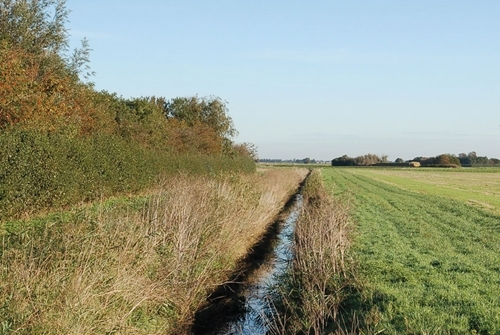By Joe Stanley Head of Sustainable Farming at the GWCT Allerton Project

The transition from the old Common Agricultural Policy-style farm support payments to a new English system of ‘public money for public goods’ was always going to be a hard sell for the civil servants and politicians tasked with implementing the post-Brexit Environmental Land Management (ELM) framework. They were asking farmers to change three generations of muscle memory away from producing ever-cheaper food for the nation, and towards mitigating climate change and generating more favourable outcomes for habitats and wildlife.
Critical to this journey was always going to be trust amongst farmers that, having been asked to play a key role in deliver the larger part of government’s ambitious and numerous nature and climate targets, there was a long-term commitment from Government to support them in doing so.
The announcement that new applications to the Countryside Stewardship Capital Grant scheme were being suspended is therefore risks eroding that trust, with Defra stating:
‘We will simplify and rationalise our grant funding, ensuring grants are targeted towards those who need them most and where they can deliver the most benefit for food security and nature. We will confirm future grant rounds in due course’.
The implication is that pressure from the Treasury has resulted in DEFRA having to cut its budget. This would be in line with the fact that the £2.4bn agriculture budget for England has been reduced dramatically by inflation in the decade since it was last set. Although the government may claim that £5bn over the next two years is ‘the largest budget for sustainable food production in our country’s history’, in reality, that figure should be in the region of £6.5bn just to have kept pace with Consumer Price Index inflation. At the same time, agricultural input cost inflation has been much higher, with the Agriculture and Horticulture Development Board (AHDB) recently calculating that the average cost of farm inputs has increased in price by 44% since 2019 alone.
The Capital Grant scheme is an essential element of providing the ecosystem services that farming is in prime position to deliver in the economy; cleaner water, more biodiversity, carbon sequestration and storage. That this news comes during the hedge planting and maintenance months will be galling for the farmers and land managers keen to reverse some of the government-directed damage of the post-war years.
Confidence will also be undermined by the announcement that residual delinked direct payments are to be unexpectedly cut in the coming financial year to redirect that money into ELMs, a scheme which after eight long years of development is yet to be fully implemented. Significant bottlenecks remain around the roll-out of the Sustainable Farming Incentive, while there is still no news on the revamped Higher Tier scheme, originally due for roll out in January 2025, but now also delayed until at least June. The continued provision of rollover ‘mirror agreements’ of existing Higher Tier and old Higher Level Scheme agreements is an unsatisfactory stopgap.
After eight years of being encouraged to engage with these schemes farmers now find themselves largely unable to do so. Turning land managers away who are keen to help restore nature and draw down greenhouse gas emissions does not inspire confidence.
Nature friendly farming has the unique potential to deliver for many of our professed national priorities, from food security to natural capital and climate change mitigation. But Government must decide where its priorities lie. Defra’s own figures demonstrate that in 2023-4, 30 percent of English farms lost money, with another 25% making as little as £0-£25,000. The risk is, they will go back to what three generations of muscle memory is telling them to do – intensify, and farm the land harder.
However, the idea that intensification is the economic solution is misguided. With ever rising input costs and the increasing impacts of adverse weather caused by climate change, the long-term resilience of farm businesses depends on embracing regenerative practices rather than abandoning them. Equally, for the Government to cut investment in farmers to deliver natural capital is a false economy and could miss a critical window of opportunity, which will cost the Treasury far more in the long run.